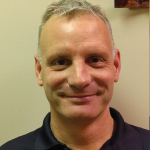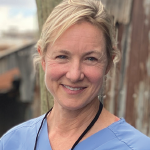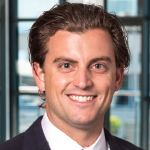
© Unitone Vector / shutterstock.com
Between seeing patients in clinic, performing surgeries, doing hospital rounds, and trying to have a life outside of medicine, physicians have some of the busiest lives. But many also make time to advocate for a variety of causes.
Explore This Issue
August 2020Volunteering can provide an escape hatch from the pressures of doctors’ regular jobs, according a study published in the Permanente Journal: A peer-reviewed journal of medical science, social science in medicine, and medical humanities. (Physicians’ perceptions of volunteer service at safety-net clinics. Perm J. 2017;21:16-003;).
Despite challenges like a lack of time, physicians often become advocates for other causes because the work they do isn’t just meaningful but sometimes crucial to the lives of others.
These three physicians shared with ENTtoday the advocacy work they do that inspires them. Hopefully, it will inspire you, too.
Legislation for Doctors and Patients
 David Boisoneau, MD
David Boisoneau, MD
Private Practice Otolaryngologist in Waterford, Conn.
Chair of the Legislative Affairs Committee, American Academy of Otolaryngology-Head and Neck Surgery
Fifteen years ago, I became involved with the legislative affairs committee at the AAO-HNS when some of the leaders of our Connecticut State Society, including some of the doctors who trained me, were looking for younger otolaryngologists practicing in the state to get involved. They knew I was passionate and enjoyed engaging with others, so they basically roped me into being part of their executive committee. That began as a secretary position for two years, and then I spent two years as a treasurer and two years as a president elect. I became more involved nationally, attending the board of governors’ meetings in Alexandria and then the national meetings. All the while, I networked and learned how advocacy works on a larger scale.
I work closely with the advocacy staff at the AAO-HNS on grassroots legislation. The staff will come to me to try to amplify legislative messages as quickly as possible; we have a lot of avenues to get information out to our members. Maura Farrell, senior director of advocacy at the AAO-HNS, is our lobbyist in Washington, D.C., and she, along with our academy CEO Dr. Jim Denney, meets with legislators on an ongoing basis in D.C. to advance our advocacy efforts.
Before COVID-19 showed up, we were working on hearing aid and audiology legislation on Capitol Hill. There are a couple of bills in the House and the Senate that seek to expand the ability of an audiologist to examine and dispense hearing aids to the Medicare population without an otolaryngologist’s referral. Since there are many hearing disorders that audiologists may miss or aren’t qualified to treat, there are a lot of problems with this. As an academy of ear, nose, and throat doctors, obviously, we oppose any legislation that would bypass a proper ear exam by a licensed physician.
We also work on a lot of legislation that isn’t specific to otolaryngology, like surprise billing. These are complicated billing situations where a patient might see an out-of-network doctor or go to an out-of-network emergency room for an urgent problem and get a bill they weren’t expecting. We are trying to advocate for our patients as well as for our doctors when the burden then falls back on them to collect this money from the patient.
Advocacy can be frustrating sometimes because I hate politics. But we need rational people who can be advocates for doctors and patients in a state of constant regulatory change. —David Boisoneau, MD
Legislation surrounding the coronavirus pandemic is all happening so fast. HIPAA regulations have been relaxed so we can communicate with patients by telephone or video conferencing. Previously, to do this was considered a significant privacy violation—in fact, the Department of Health and Human Services has already placed a notice on its website saying that these situations will be protected from HIPAA violations. For example, if I Facetime a patient tomorrow and they show me a throat problem, and I then document that I saw it on Facetime, the government can’t file a complaint against me for privacy violations.
There was also an announcement that physician licensing now is valid across state borders. This is very helpful in the event some of us may be asked to go to a COVID-19 hot spot to fill in. Doctors are getting sick, and these are worst-case scenario type situations, but it’s important to have these things in place.
There was a lot I didn’t know when I got started, and it can be difficult for doctors to admit when we don’t know something, because we’re told we know everything when we begin to practice. But I learned how to say, “No, I don’t know how that works. Can you explain it to me?”
Also, I’m not a very political guy; I’m a registered Independent and I have no religious affiliation. I just take everything in, evaluate the evidence, and try to make a rational and reasonable course of action based on that. Advocacy can be frustrating sometimes because I hate politics. But we need rational people who can be advocates for doctors and patients in a state of constant regulatory change.
Caring about your mission is the No. 1 criteria for being an advocate. I would get so annoyed at obstacles put in our path that were counterproductive and counterintuitive. I decided I could complain, or I could learn more and maybe be part of figuring out how to fix things.
Medical Education in Neglected Communities
 Ann Messer, MD
Ann Messer, MD
Family Physician, Austin, Texas
Founder and Director, One Good Turn
My advocacy journey started several years ago, when my husband and I decided to cancel Christmas and instead take our kids on one of those adventure trips where you do a service project. We went on an organized trip to Nicaragua with a group called Road Monkey to put in a clean water system. When we got there, they realized my husband and I are doctors—he’s a nephrologist—and the organizers literally shoved a big cardboard box of expired medicines into our hands and said, “Please go take care of the people up in the mountains. They really need you.”
We were game. There were no roads, and burros carried our food. Everywhere we went, hundreds of people came out and stood patiently in line waiting to see these two American doctors with their cardboard box of expired medicines. It was a profound experience.
After we had gone home, I started waking up at night thinking about solutions for those communities. I continued to do service trips and learned so many things. Finally, I decided the best way to have an impact would be to provide basic medical education to people already providing care in the community at the level of their education and understanding.
Four years ago, we started One Good Turn with a very generous development grant and some good PR from Love, Tito’s (a charitable foundation started by the owners of Tito’s Vodka). Our mission is to provide practical medical education and culturally sensitive medical care to neglected communities worldwide. With the grant, we were able to hire one salaried employee: Annie Albrecht, our amazing administrative director. Annie writes the blog for our website, and she, or one of our interns, makes our Instagram and Facebook posts. The rest of our outreach has been through word of mouth.
We’ve learned that there’s a way of reaching out in equality and community that can be validating and empowering to everyone involved. The trick is to not just do it once and then never come back. When you provide this sort of care, there’s a code of ethics around making sure you don’t create unintended negative consequences when you go into a community. —Ann Messer, MD
The individuals we’re training in these villages are generally laypeople appointed by the government, not doctors. Sometimes they’re nurses. The level of training is broadly different. Oftentimes, people in low- and middle-income countries who are designated as doctors have some level of training from the minister of health, the Red Cross, or a church organization, but they rarely attend the kind of medical schools we have in the U.S. One Good Turn works to determine where the person is at in their medical education and then bring them information and scale it to whatever level of education they have.
Along the way, we’ve learned that there’s a way of reaching out in equality and community that can be validating and empowering to everyone involved. The trick is to not just do it once and then never come back. When you provide this sort of care, there’s a code of ethics around making sure you don’t create unintended negative consequences when you go into a community. The majority of that has to do with maintaining relationships and not promising what you can’t deliver.
We work pretty regularly with a school in Kenya whose medical officer has had a lot of interactions with the medical system, so he understands a bit about hospitals. When we got there, he showed me children with tinea on their scalps. They call this “shilling.” We talked about how to treat it; he was so excited that there was a medicine that he could put on their scalps and also give them by pill. We also taught him about record keeping and helped him create a rudimentary handwritten medical record system. We’ve also taught him how to treat scabies and diarrhea; next up will be asthma. He’s building a resource of medical information for this community and creating record keeping that will make his job as a healthcare worker much more effective.
We were in another part of Kenya not too long ago and made friends with a young doctor who followed us on Facebook. We had made a post about how loss of smell and taste may indicate a COVID-19 infection. This post helped him identify three people with these symptoms in his village, and he put them in quarantine right away. He also sent us a picture of himself and all of his medical providers wearing masks and practicing social distancing. I’m so excited we were able to make that little bit of impact.
Ending the Opioid Epidemic in Ohio
 Stephen Nogan, MD
Stephen Nogan, MD
Facial Plastic & Reconstructive Surgery, Columbus, Ohio
The Ohio State University
My work primarily involves clinical research and grassroots outreach to my patients, their families, and other physicians. As a surgeon, I prescribe opioids on a regular basis, which gives me a daily opportunity to educate all groups of people involved in patient care.
I was partly inspired to do advocacy work when a patient shared with me that they had lost a child to an opioid addiction. There’s so much that can be learned from talking with patients and asking questions. I also spent time reading and studying both academic articles and non-medical accounts of this crisis.
My experiences as a surgical resident involved prescribing large amounts of opioids, which was commonplace at the time for even minor surgeries. When I began practicing as a facial plastic and reconstructive surgeon in 2017, I felt a strong obligation to accurately determine how much opioid medication my surgical patients needed, and I committed to not prescribing more than that.
There have been significant efforts and progress made in preventing prescription opioid abuse nationwide, and especially in Ohio where I live and practice. The more significant issues that need to be addressed now have to do with treating those already addicted, supporting them, and supporting the rehab institutions that are directing these efforts. This is such a critical part of my job on a daily basis that it didn’t feel like I had to carve out specific additional time to focus on it.
The best way to raise awareness about this issue is to share what I have learned with my patients and colleagues and to publish in reputable journals and accept speaking engagements at academic institutions as well as nonmedical settings. I have co-authored recent studies, including “Postoperative Opioid Prescribing and Consumption Patterns after Tonsillectomy” (Otolaryngol Head Neck Surg. 2019;161:960-966) and “Postoperative Prescriptions and Corresponding Opioid Consumption After Septoplasty or Rhinoplasty” (Ear Nose Throat J [published online ahead of print Oct. 15, 2019]. doi: 10.1177/0145561319866824).
Like many other surgical practices around the country, we’ve had significant success thus far in reducing the impact of the opioid crisis, primarily by reducing the volume of opioids we prescribe. Not unlike in other industries, sometimes in medicine we have to learn from our mistakes. The overuse and misuse of prescription opioids is an example of that. I think we have much to be proud of with regard to how the medical community has tackled this challenging issue head on.
Every otolaryngologist needs to know that very often their patients aren’t taking anywhere near the total amount of medication they’re prescribed. At the first postoperative visit, make a habit of asking your patients how many opioid pills they took after surgery. I’m often surprised by the answer. Earlier today, for example, I saw a patient one week out from an open septorhinoplasty who took zero of the 10 oxycodone tablets I prescribed him. I think many physicians have already adopted this kind of recommendation, and patients are also more educated and tend to advocate for themselves when it comes to opioids.
Renée Bacher is a freelance medical writer based in Louisiana.